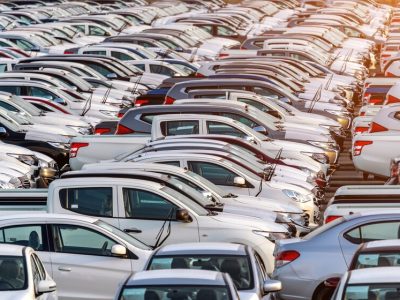How the legendary scandal affected VAG’s position in North America and Europe?

In 2015, the automotive industry experienced its most significant scandal in history. It arose from the fraudulent activities of the Volkswagen Audi Group, which artificially lowered the indicators of harmful emissions into the atmosphere, thereby adjusting its cars to the strict environmental standards of Europe and North America. The revelation of the deception was a shock to many VAG fans and created severe problems for all the companies included in it. Let’s find out the details of this scandal and determine how much it affected VAG’s position in Europe and North America.
What is the Scandal All About?
The scandal that shook the world community happened in 2015. However, the sad events for VAG began back in 2013. This year, the ICCT organization, which deals with issues of environmental friendliness of various vehicles, pointed out the need to inspect multiple cars to identify violators of the so-called Clean Air Act.
During the testing, they used models that they had produced and sold in the USA. Most showed positive results, but two Volkswagen cars failed the test.
According to ICCT statements made in 2014, the vehicles’ actual emissions of nitrogen oxide and dioxide into the atmosphere exceeded the norm by almost 40 times.
Over the following months, the American EPA investigated the reasons for such results because, according to official documentation, Volkswagen cars fit within the stipulated limits and did not violate environmental legislation.
They completed the work in September 2015. Its results were a real shock for everyone who played a part in the car production. According to the EPA, Volkswagen created special software that helped control harmful emissions exclusively during laboratory testing.
This made it possible to pass all the tests and receive confirmation of compliance with American environmental standards. The rest of the time, diesel engines of many models of the German manufacturer caused enormous harm to the environment.
They conducted similar tests in other countries in North America and Europe. All of them showed excess emissions of harmful substances and proved Volkswagen’s deliberate desire to deceive the regulatory authorities of many countries worldwide.
The German manufacturer installed fraudulent software on models from 2009 to 2015. During this time, they produced almost 11 million environmentally hazardous cars. Most of these were successfully sold in the US and the European Union.
Thus, Volkswagen’s attempts to justify its actions failed, and in 2017, the company admitted its guilt.
Implications for VAG

The global emissions fraud scandal has left VAG in a challenging position. Due to its fraudulent activities, the company faces serious financial difficulties and legal, regulatory, and reputational consequences.
Financial
The main punishment for VAG for its deliberate illegal actions was the financial costs. They were colossal and put the entire company on the brink of bankruptcy.
According to various sources, the scandal, with the concealment of accurate emissions figures, cost Volkswagen tens of billions of dollars.
Only the amount of fines, penalties, and other mandatory payments amounted to 33.3 billion, indicating this event’s enormous scale.
The software due to which the scandal broke out was installed on 11 million VAG cars. At the same time, it was activated far from each model.
Despite this circumstance, the number of vehicles that the company required to modify amounted to several million units. Volkswagen, Audi, Skoda, and Seat were in a challenging situation as they had to allocate billions of dollars for these purposes.
Additionally, in North America and Europe, the residents filed more than 100 thousand civil lawsuits against the company. This was because these residents were the majority of the victims of VAG’s fraud. In each of them, deceived customers demanded financial compensation of varying amounts.
Thus, VAG had to pay more than $14 billion in North America. No less impressive compensation was won from the German company by European clients.
Legal and regulatory
After VAG was exposed and admitted, the company was bombarded with lawsuits and various regulatory actions from regulatory organizations, government agencies, and deceived customers.
They were all lost before they started since the court had already proven the fraud. Furthermore, the company’s representatives confirmed their illegal activities.
The only thing VAG could count on was a reduction in the amount of fines. However, even in this regard, there were not many chances.
In 2016, customers who had managed to purchase cars with fraudulent software filed a class action against VAG. A few days later, in a state civil lawsuit, Volkswagen also became a defendant.
The following year, VAG was brought to criminal liability for various offenses that resulted from falsifying indicators of harmful emissions into the atmosphere.
Similar punishments awaited the company in 2018. In 2019, the SEC accused Volkswagen of fraudulent investors, and the well-known manufacturer also faced a class action lawsuit in its native Germany. There, the company violated many local laws with its actions and received a well-deserved punishment for it. In the following years, VAG sued organizations, clients, and government agencies in dozens of countries around the world.
Reputational
Once you have been dishonest with people, you will always be a swindler to them. This simple truth perfectly describes the situation with VAG’s reputation. After the scandal, the company received much negative feedback and lost many customers and investors. This event changed people’s attitudes towards Volkswagen and made the brand name synonymous with the word “fraudster.”
Because of the scandal, the reputation of VAG’s executives suffered. In particular, Martin Winterkorn, who held the position of CEO, resigned immediately after receiving the accusations.
Such experienced executives as Heinz-Jakob Neusser, Ulrich Hackenberg, Wolfgang Hatz, and others also lost their positions and forever ruined their reputations. Mass layoffs in the ranks of VAG’s management slightly reduced the degree of tension but still did not help to restore trust in the company quickly.
VAG’s damaged reputation led to a sharp drop in the German automaker’s shares. This happened immediately after the publication of the investigation results and the provision of evidence of numerous cases of fraud. On the first day, Volkswagen shares fell more than 30%, which everyone had expected. The shares continued to fall, but not as quickly.
How has VAG’s Position in Europe and North America Changed?

The emissions rigging scandal has worsened VAG’s position in Europe and North America to the greatest extent possible. It has led to people massively refusing to buy the company’s cars and regular customers switching to its main competitors.
VAG has also lost many current and potential investors. This has lowered the company’s models in various popularity ratings, significantly reduced sales volumes, and forced the once-profitable Volkswagen to operate at a loss.
To save its reputation, the company has conducted several advertising campaigns. Each of them emphasized the commitment of the new management to comply with all rules and laws and also reiterated VAG’s desire to regain customer trust.
In particular, Volkswagen has invested vast amounts of money in new technologies to help reduce emissions of harmful substances into the atmosphere.
The German manufacturer has also promised to strengthen control over resolving environmental issues. The measures taken have yielded promising results.
VAG has gradually gotten rid of its dark past and has earned a second chance through its actions. Now, the company is slowly restoring its position in the European and North American markets, but it still has not reached the indicators of the past.
Times Have Changed
After the scandal, Volkswagen is under the supervision of all, without exception, regulatory authorities. The company’s cars are checked as carefully as possible for compliance with environmental and other standards, so the manufacturer makes them close to the standard.
In this regard, when buying a new or salvage Audi for sale today, you can confidently say that this car fully complies with the current standards of the USA and the European Union.
The same applies to Volkswagen, Skoda, and Seat models. Buyers also demand more from VAG than before. They want more modern cars that can outshine their predecessors and help them forget about past problems.
The scandal around VAG has become the loudest in the history of the auto industry. It brought Volkswagen to the bottom and created severe problems for other brands. At the same time, this event helped tighten control over the vehicles produced today, regardless of who their manufacturer is.
VAG is unlikely to repeat such scandals in the future, but even if this happens, their scale will be much smaller. Nevertheless, one would like to hope that all car manufacturers will learn a lesson from the scandalous history of VAG and protect themselves from rash actions.
Read More…
























